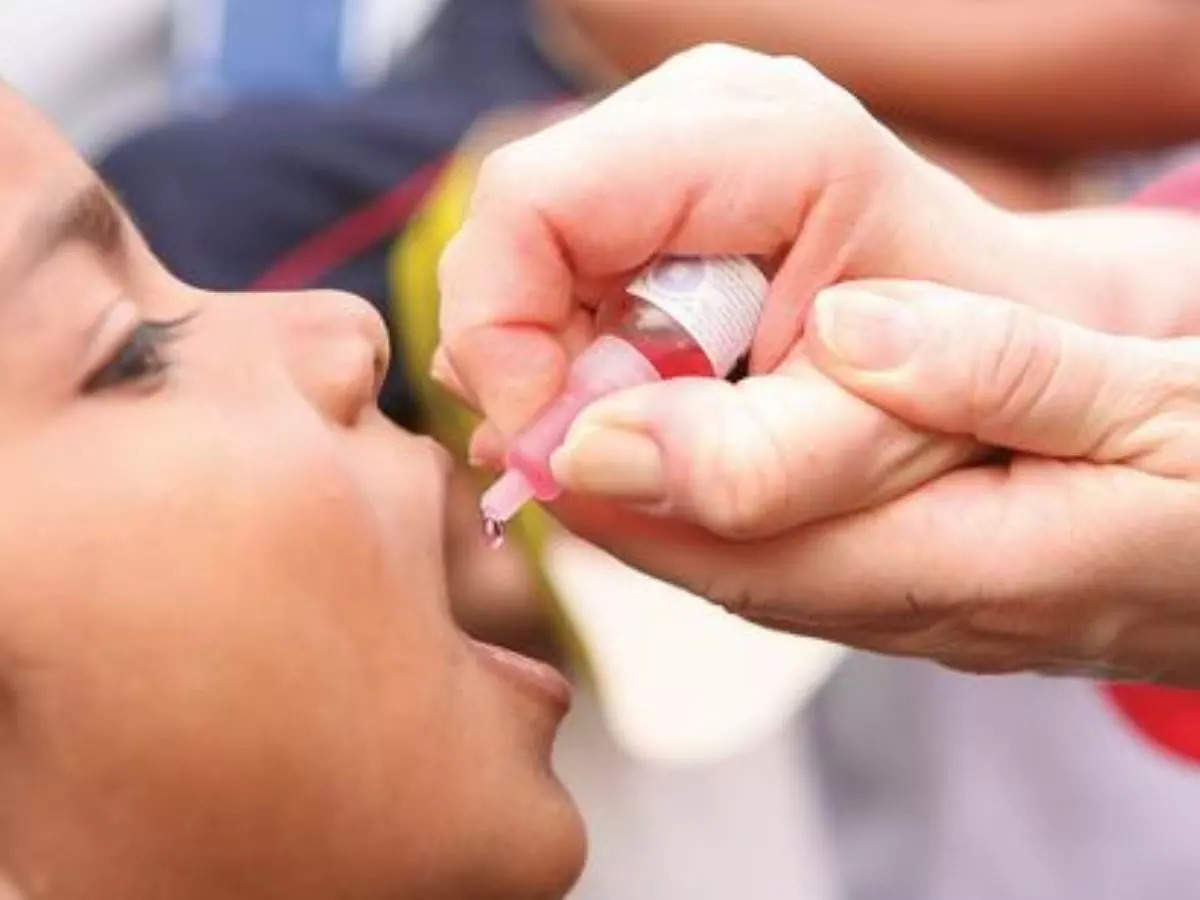
New Delhi: Even as the world grapples with the challenge of vaccine-derived polio virus (VDPV), instances of which have been reported on a sporadic basis from countries using oral polio vaccine including India, a case has been reported from Kerala where the VDPV got transmitted from an immune-deficient child to his father, a healthy contact – an extremely rare phenomenon which raises concerns about potential of the spread of polio virus to the community from susceptible individuals.
The discovery was made during an exercise undertaken by the ICMR-National Institute of Virology, Mumbai and ICMR – National Institute of Immunohematology and the World Health Organisation among others, was carried out in two phases in 2022, according to a study published in the journal Vaccines.
Total 157 children with inborn errors of immunity or IEI were screened for the excretion of poliovirus/non-polio enteroviruses in different parts of the country and it was found that one child from Malappuram in Kerala, who had received two doses of the oral polio vaccine (OPV) was excreting the virus. Immediately, on August 1, 2022, the information was shared with ICMR Delhi, health ministry and WHO and epidemiological investigation in the community was initiated, the Vaccine study shows.
While all other samples collected from the community tested negative for the virus, the study says, investigators found that the child’s father, an asymptomatic 32-year-old male, was found to be excreting the same virus.
The study does not detail the 32-year-old’s recovery but it points out that iVDPVs are likely to be a major threat for the re-emergence of poliovirus and suggests a long-term plan for iVDPV surveillance to ensure sustainability in the post-polio eradication phase. “Expansion of IEI surveillance will facilitate early detection and the follow-up of iVDPV excretion to mitigate the risk of iVDPV spread,” the study says.
There are very few reported incidents of immunodeficiency-related vaccine derived poliovirus (iVDPV) transmission to healthy contacts globally. According to a study published in the journal Vaccines, a US study reported VDPV from an unknown source with transmission in an unvaccinated community, wherein 23 children, including a child with severe combined immune deficiency, were infected. Another report from Spain described the transmission of iVDPV to healthy contacts, the study says. “…our report is one of the rare incidents of iVDPV transmission from an IEI (Inborn Errors of Immunity) child to a healthy contact case in the family,” it adds.
India, along with 10 other countries in the World Health Organisation (WHO) Southeast Asia Region, was declared polio free in 2014. No new cases of polio caused by the poliovirus that is circulating naturally in the environment have been reported in India since January 2011.
However, there have been few instances of vaccine-derived polioviruses, a well-documented strain of poliovirus mutated from the strain originally contained in oral polio vaccine (OPV).
The OPV contains a live, weakened form of poliovirus that replicates in the intestine for a limited period, thereby developing immunity by building up antibodies. According to the WHO, on rare occasions, when replicating in the gastrointestinal tract, OPV strains can genetically change and may spread in communities that are not fully vaccinated against polio, especially in areas where there is poor hygiene, poor sanitation, or overcrowding. “The lower the population’s immunity, the longer vaccine-derived poliovirus survives and the more genetic changes it undergoes,” the UN health body says.
It adds that in very rare instances, the vaccine-derived virus can genetically change into a form that can cause paralysis as does the wild poliovirus.






